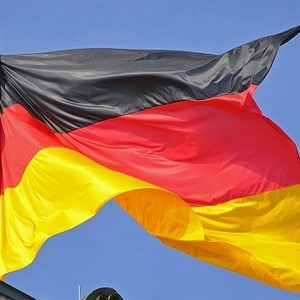German biodiesel, HVO consumption projected to rise 13% in 2020

July 30, 2020
BY Ron Kotrba
Germany’s Union for the Promotion of Oil and Protein Plants (UFOP) estimates German consumption of biodiesel and renewable diesel, or hydrotreated vegetable oil (HVO), will be approximately 780.5 million gallons for 2020, an increase of approximately 90 million gallons over 2019.
The basis for the estimate is data provided by the Federal Office of Economics and Export Control (BAFA) for January through May. According to UFOP, the higher consumption in 2020 compared to 2019 is because the GHG reduction obligation increased from 4.5 percent to 6 percent on Jan. 1.
Advertisement
Advertisement
A coronavirus-induced reduction in consumption cannot be determined, UFOP concluded, due to the increased quota obligation as of Jan. 1.
“On the contrary,” the organization stated, “in May, an historic high of 9.1 percent was reached with regard to the bio-share in the diesel market. This shows the development potential to make a noticeable contribution to climate protection in transport already today.”
This volume of 780 million gallons can only be achieved, according to UFOP, if sustainably certified hydrotreated vegetable oil (HVO) can be credited toward the nation’s greenhouse gas (GHG) quota.
Advertisement
Advertisement
“This openness to technology must be continued after 2020,” UFOP stated. “This is because the maximum proportion of biodiesel in diesel fuel is limited to 7 percent by volume by the European standard for diesel fuel, EN 590. Hydrogenation processes enable oil refineries to enter into a green hydrogen strategy. The openness of the technology is a prerequisite for a gradual increase in the greenhouse gas reduction obligation. This sector coupling starts on the farmland and enables the timely start of a defossilization of the fuel in existing fleets.”
UFOP is pushing for an EU-wide introduction of a GHG quota system, which the organization stated “must be increased step by step from 2021 onwards, so that the consumption trend achieved in 2020 does not remain a one-off effect.”
Related Stories
Kintetsu World Express Inc. has signed an additional agreement with Hong Kong, China-based Cathay Pacific Airways for the use of sustainable aviation fuel (SAF). The agreement expands a three-year partnership between the two companies.
Broco Energy on July 17 announced a new partnership with the Massachusetts Port Authority (Massport) to deliver and transition Massport's fuel tanks to renewable diesel across its various facilities.
Shell Aviation, Accenture, and Amex GBT on July 10 announced Avelia is in the process of evolving to an industry solution with independent data hosting and a multi-supplier model helping users access the GHG benefits of SAF.
Avia Solutions Group, the world's largest ACMI (aircraft, crew, maintenance, and insurance) provider, has partnered with DHL Express to reduce greenhouse gas emissions from its international shipments using SAF.
Bangkok Airways Public Company Limited has officially announced the adoption of sustainable aviation fuel (SAF) on its commercial flights, reinforcing Thailand’s green aviation industry. The initiative took effect starting July 1, 2025.
Upcoming Events










